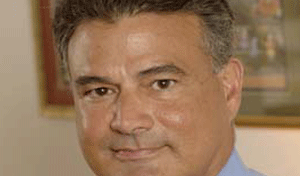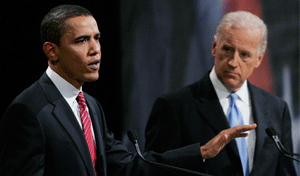President Obama - A New Beginning for America
- Written by Osman Bengur
- Published in TOA Authors

By Osman Bengur
Baltimore, Maryland
With the election of Barack Obama as the next President of the United States, one could almost hear a collective sigh of relief emanating from around the world. It was as if the darkness that had come over the world for the past eight years was finally about to be lifted.
The election of a new American president always brings with it a sense of hope and possibility of better days to come. And we certainly need that. With the world economy in turmoil and seemingly intractable foreign policy challenges, seldom has an election carried such importance to the U.S. and the world.
Barack Obama is not well known to the Turks, so they rightly want to know what kind of President he will be and what impact his presidency will have on U.S.-Turkish relations.
Predictions in politics are more often wrong than they are right. A year ago, before the first presidential primary in January, the nomination of Hillary Clinton by the Democrats was almost a foregone conclusion, while on the Republican side, John McCain’s candidacy was on life support. At this early stage, all we can do is speculate on what an Obama administration will do. Expectations for an Obama administration are sky high, perhaps unrealistically so given the problems he faces. But there are encouraging signs that President Obama will justify the faith that Americans and the world have placed in him.
Obama hasn’t taken office yet, but his campaign revealed the president elect’s even temperament and keen intellect. These provide important clues as what kind of President Barack Obama will be. During the campaign, Obama inspired millions of voters with his oratory, many of them young people who were voting for the first time. He demonstrated his broad appeal in the massive crowds he drew to his campaign rallies, and the unprecedented amount of funds he raised. His campaign organization was highly disciplined and focused. He correctly assessed the mood of the American people who were yearning for a change from past eight dismal years. He showed great political acumen by mastering the intricacies of an inscrutable primary nomination process to defeat the much better known Hillary Clinton, and showed calm resolve in a tough general election campaign. Obama’s inspiring yet sober and thoughtful election night speech was a tour de force. Rather than showing jubilation that would have been understandable given his astounding accomplishment, the newly elected president showed a humble appreciation for the enormous challenges that he faces.
Governing, however, requires different skills than campaigning. Choices have to be made; unlike during the campaign, Obama won’t be able to assuage everyone with his soothing rhetoric. The road ahead is difficult and there will be many unexpected turns. The economy is on a downward spiral and foreign policy decisions on Iraq, Iran and Afghanistan cannot wait.
In assembling his team, Obama is showing signs of being cautious and measured in his approach to his transition to power. He is demonstrating a pragmatic side in staffing his White House administration with political veterans. As of this writing, press reports indicate that Obama will nominate Hillary Clinton to be Secretary of State, and New York Federal Reserve President Timothy Geithner to be Secretary of the Treasury. Word of the appointment of Geithner calmed skittish world markets for a time but the expectations are that this recession will be deep and painful.
Hillary Clinton as Secretary of State would bring to the Obama team someone with whom Turkey and foreign governments are familiar. Some concern has been expressed as to the hawkish views she expressed on Iran during the presidential campaign... Too much should not be read into what she said on the campaign trail, where as a potential president, she had to appear tough enough to handle the job, or political compromises she had to make as a Senator. Clinton has a strong pragmatic side to her that indicates she can adjust to the situation at hand.
The economic crisis is job one for Obama. The news is dire: consumer spending is down and unemployment is rising; bankruptcies are increasing, and the housing market is virtually dead. Businesses are re-trenching in the expectation of a prolonged downturn. Credit is tight and the lack of capital is making life difficult for both small and large businesses. Any recovery looks a long way off.
To help avoid a prolonged recession or worse, a depression, Obama proposes a massive public spending program to get the economy on track.
Spending for transportation and other public works infrastructure will help provide work to the construction industry and will also funnel money to state and local governments which must operate with balanced budgets and are having to cut back spending at all levels because of reduced tax revenues. These actions will restore some confidence even as it will take time for his programs to get implemented.
Much to the consternation of many Democrats, some costly projects, like reforming health care, may have to been accomplished on a piecemeal basis.
In light of the dour economic news, it will be President Obama’s main task to show the nation and the world that he is taking the necessary steps to improve the economy. There will no doubt be missteps along the way, but given the tough situation he is inheriting, the public will probably give him the benefit of the doubt for a while. Any progress, however slight, should begin to restore confidence, which will be a pre-requisite for an economic recovery.
Obama is not likely to have a similar grace period when it comes to foreign policy. Vice President Biden may have been inappropriate when he stated that the new president was likely to be tested by foreign leaders in the first six months of his presidency, but he was probably right.
Obama will push the Pentagon for a plan to start withdrawing troops from Iraq, while at the same time wanting to increase pressure on the Taliban and Al Qaeda in Afghanistan without alienating Pakistan.
Iran is continuing to develop its nuclear program. The Russians have threatened to put missiles along their borders if NATO goes ahead with plans for a missile defense shield.
The Obama administration is likely to take a much more active role in trying to resolve the festering Palestinian-Israel problem, a fair resolution to which is at the heart of many problems in the Middle East.
The President-elect has stated that he wants to use diplomacy to address many of these issues, but he will have to do so without appearing weak to Iran’s wily Ahmedinejad and Russia’s dyspeptic Putin.
Where does Turkey fit into the Obama administration’s plans? It remains to be seen, but given the high-profile problems of Iraq, Iran, Afghanistan and Russia, common sense would dictate that the U.S. would want Turkey to play an important role. Turkey has shown that it is already willing to be active diplomatically in the region. For example, Turkey is mediating talks between Syria and Israel, and can provide a counter balance to Iran and Russia’s ambitions in the region. A peaceful Iraq is as important to Turkey as it is to the U.S., if not more so, and Turkey can play a key role in helping to stabilize Iraq, particularly the Kurdish area.
In the past, much has been asked of Turkey but from Turkey’s standpoint, not enough has been given. While of late there has been cooperation on the PKK issue, residual bad feelings and a certain level of mistrust have characterized the relationship with the US during the Bush administration.
Turkey has its own legitimate issues that it needs the new Obama administration to help it with, not just in regard to the PKK, where Turkey will continue to need the cooperation of the U.S. to eliminate PKK sanctuaries across the Iraqi border.
Since the election of the Greek Cypriot leader in February 2008, there has been renewed hope for a settlement on the Cyprus issue. Talks have been ongoing since September 2008 between the two sides. While the United States supports the resumption of talks, it has not been actively involved. U.S. intervention could provide the necessary impetus to reach a final agreement. If the U.S. decides to get involved, it will be a telling test for the Obama administration to see whether it will succumb to the powerful Greek lobby in the US, which will strenuously oppose any perceived concession to Turkey or the Turkish Cypriots, or whether it will take a more even handed approach.
The 800 pound gorilla in U.S.-Turkish relations is the question of the so-called
“Armenian genocide.” Prime Minister Erdogan, in his recent visit to Washington for the G20 Economic Summit, made clear in an address at the Brookings Institution in Washington that any recognition by the US of the events of 1915 as genocide would irreparably damage relations between Turkey and the US.
There is no reason to believe that he isn’t deadly serious. It is an unknown whether Obama and Vice President-elect Biden, who in the past have expressed support for the Armenian position, will risk a rupture with such a key ally as Turkey at a time when Obama will need Turkey’s cooperation on a number of key regional issues vital to U.S. interests. Turks will hope that Hillary Clinton and Rahm Emmanuel, Obama’s new chief of staff, who opposed the congressional genocide resolution, will oppose any actions that would alienate Turkey.
There is a way out of this conundrum. The Turkish government’s proposal for an independent commission of historians to study the issue would take the genocide question off the political table. Such a historical commission makes eminent sense, but for this to happen, the Obama administration is going to have to take the lead and be the “honest broker” to insure that all sides will cooperate. In doing so, Obama will have to be willing to withstand intense lobbying from Armenian interests and powerful congressional Democrats like House Speaker Nancy Pelosi.
If, indeed, President Obama wants to change business as usual in Washington, as far as Turkey is concerned there would be no better way for him to demonstrate this than by removing politics from the genocide debate that has from time to time paralyzed previous administrations and congresses and threatened to derail relations between the two countries.
It would be a bold move by the new President. It would demonstrate that he is willing to stand up to parochial interests. And it would win him tremendous good will with the Turkish nation.
With threats of terrorism still high and tremendous instability in the Middle East, the world is far different from the previous century where Turkey was always there for the U.S. A more confident Turkey appears determined to play a leadership role in the Middle East and the Caucasus. In fact, it may just be that the U.S. needs Turkey more than Turkey needs the U.S.
Nevertheless, after eight feckless years under President Bush during which the international reputation and credibility of the U.S has been seriously damaged, and as we face unprecedented threats to our economy, U.S. leadership is needed more than ever.
The extraordinary election of Barack Obama as the next President is bringing much optimism that the United States can once again provide that leadership.
As Americans and Turks, we wish Barack Obama Godspeed, for his sake, and ours.
*A native of Maryland, Osman Bengur is a graduate of public schools in Montgomery County, Maryland and Washington, DC. He received his A.B. in 1971 from Princeton University, where he rowed on the heavy weight crew team, and received an advanced degree from Cambridge University, England. He was a first Turkish American candidate for the U.S. Congress in 2006 election








